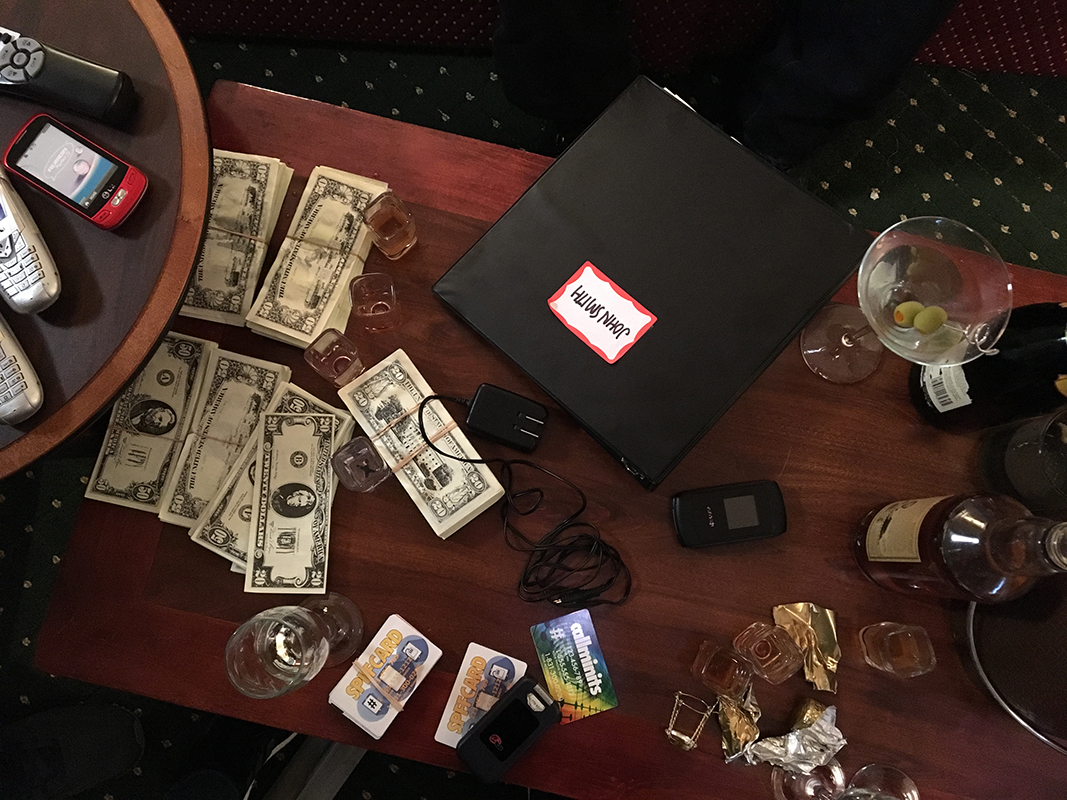High-Tech Crime Steals the Show in 'Outlaw Tech'

The Wild West of the American frontier was well-known as a lawless place; with small outposts and homesteads separated by acres of rolling prairie, outlaw behavior was difficult for law enforcers to track and prevent. And in recent decades, the lawlessness of that historic period emerged in a new frontier, as technological innovations offered novel opportunities for criminals to try to beat the system.
From stealing personal data to access bank accounts and credit cards, to hacking sensitive security systems in military organizations, modern-day outlaws turn to high-tech tools to get what they want. They are more likely to use a computer than a six-gun — as are those who uphold the law, who also depend on technology to foil and capture embezzlers, drug dealers and data thieves.
What are the tech innovations that criminals use, and how do law enforcement officers fight back? A new television series called "Outlaw Tech," premiering Wednesday (April 26) on the Science Channel, explores the cutting-edge technology that pushes boundaries on both sides of the law. [Mind-Controlled Cats?! 6 Incredible Spy Technologies That Are Real]
Each episode of "Outlaw Tech" delves into the science and the gear that make high-tech and high-stakes crimes possible. This includes a specially designed submarine that evaded sonar while carrying 16,000 pounds (7,257 kilograms) of cocaine, a "cyberscheme" to siphon $100 million from the Medicare system, and the chemical cocktail that poisoned a Russian diplomat, according to a statement from the Science Channel.
Counterfeit money comes under scrutiny in the series' first episode. In the FBI's "Operation Smoking Dragon," a three-year operation brought down a massive criminal ring dealing in illegal cigarettes, shoulder-mounted missiles and near-undetectable counterfeit $100 bills known as "super-notes." The super-notes closely duplicated security features incorporated into $100 bills in 1996, such as a special watermark, color-shifting ink and a strip that glowed pink under ultraviolet light, William S. Hammack, a professor with the chemical and biomechanical engineering department at the University of Illinois, explained in the episode.
Get it on tape
But for undercover FBI agents involved in Operation Smoking Dragon, the most important tech items were their recording devices, said retired FBI agent Bob Hamer, who appeared in "Outlaw Tech."
Hamer, whose undercover work was instrumental in bringing down Operation Smoking Dragon, said that when he began working for the FBI in 1979, they used sound recorders that were "about the size of a paperback novel," and were unwieldy and tricky to hide.
Sign up for the Live Science daily newsletter now
Get the world’s most fascinating discoveries delivered straight to your inbox.
"So I would either put it in the small of my back or inside a boot. Occasionally, depending on my assignment, I would carry a bag or briefcase, and I could throw it in there," Hamer told Live Science.
Recording devices improved over time, becoming smaller and more sensitive — and easier to conceal. But the most advanced technology was available only to international operatives, Hamer said. Federal agents frequently had to disclose their recording equipment during criminal trials, so they couldn't use tech that the government wanted to keep secret, Hamer said.
"Even in Operation Smoking Dragon, when we were dealing with Chinese generals and with the North Koreans, it wasn't a foreign counterintelligence investigation. So, we were still using less sophisticated equipment than my counterparts who were targeting Russian spies," he said. [Flying Saucers to Mind Control: 22 Declassified Military & CIA Secrets]
Cyber security
Computer hacking is another form of modern crime featured in "Outlaw Tech." And one of the show's consultants offers a unique perspective on cyberattacks — he began his own career as a hacker on the wrong side of the law.
Hector Monsegur, the cybersecurity expert for "Outlaw Tech" and director of security services for Rhino Security Labs in Seattle, was a co-founder of the hacking group LulzSec. That group claimed responsibility for hacks in 2011 that leaked data from Fox.com, planted a false story on the PBS website, and stole user data from Sony's PlayStation Network, affecting 24.6 million customers, the Guardian reported in 2013.
"I came onboard to 'Outlaw Tech' to provide insights and personal experience from when I was a black hat [someone who hacks illegally for personal gain or maliciousness]," Monsegur said.
Monsegur, who was apprehended in 2011 and served as an FBI informant, went on to use his understanding of cybersecurity to prevent hacks, he told Live Science. During his onscreen appearances in "Outlaw Tech," he describes the goals of notorious cyberattacks and outlines how they were carried out. And, what he learned from more than 20 years of hacking and trying to crack security systems he now uses to make these systems stronger, he explained.
"Cybersecurity professionals are walking a fine line — the work you're doing is the same exact work as a black hat. The only difference is that you're reporting vulnerabilities, and working to try to fix them," Monsegur said.
"Outlaw Tech" debuts on the Science Channel on April 26 at 10:00 p.m. ET (check local listings).
Original article on Live Science.

Mindy Weisberger is an editor at Scholastic and a former Live Science channel editor and senior writer. She has reported on general science, covering climate change, paleontology, biology and space. Mindy studied film at Columbia University; prior to Live Science she produced, wrote and directed media for the American Museum of Natural History in New York City. Her videos about dinosaurs, astrophysics, biodiversity and evolution appear in museums and science centers worldwide, earning awards such as the CINE Golden Eagle and the Communicator Award of Excellence. Her writing has also appeared in Scientific American, The Washington Post and How It Works Magazine. Her book "Rise of the Zombie Bugs: The Surprising Science of Parasitic Mind Control" will be published in spring 2025 by Johns Hopkins University Press.









